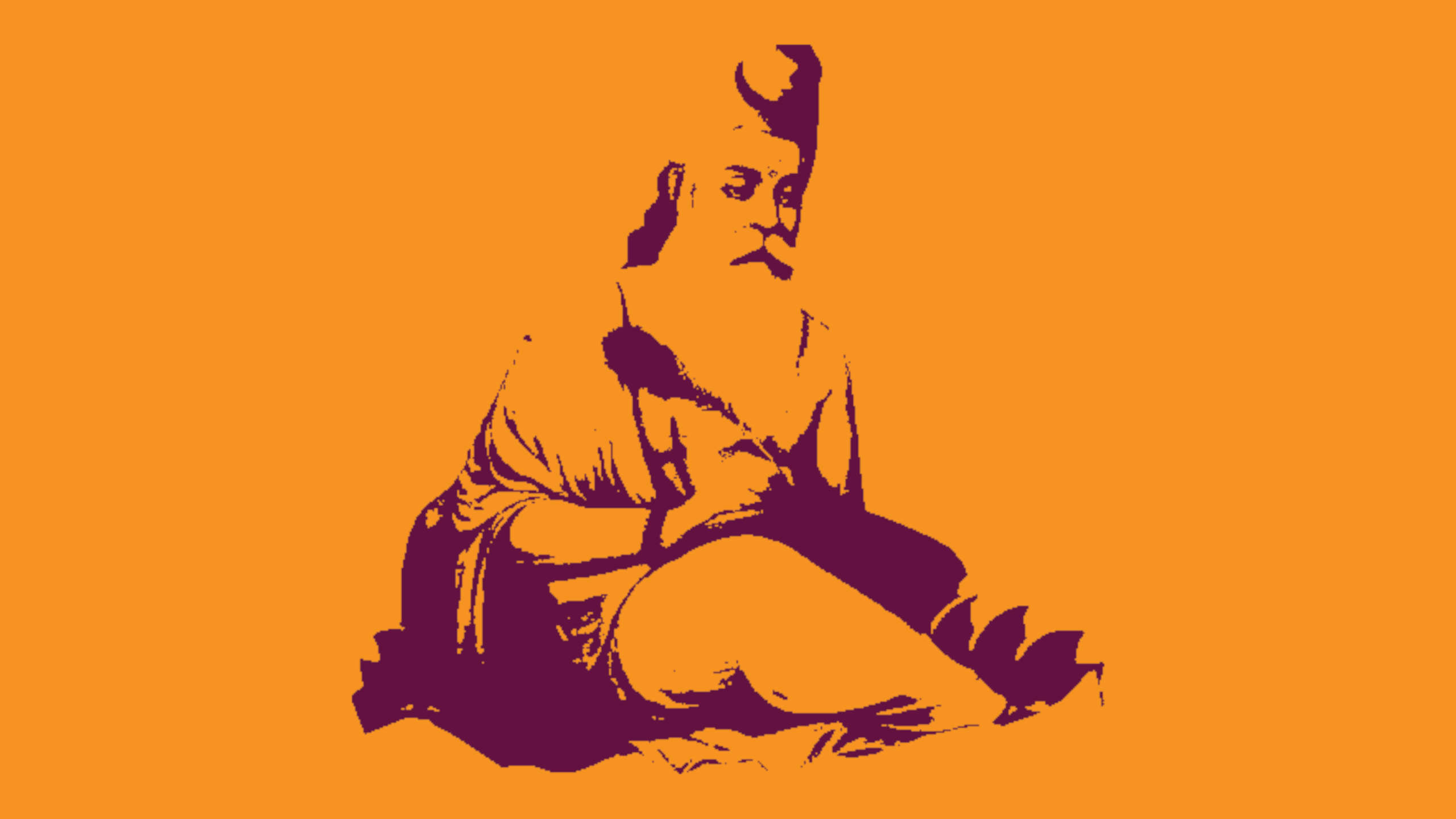Mahaṛṣi Vālmīki is remembered as ādi Kavi in the Indian kāvya tradition who composed, the widely read Indian epic Ramayan, based on the life of Lord Ram. He is deeply revered and worshipped to this day as a supreme sage and lord.
By Vinay HA, Research Associate at Rashtram
Mahaṛṣi Vālmīki is remembered as the ādi Kavi in the Indian kāvya tradition. The story goes that Vālmīki, just after hearing the greatness of Sri Rāma from the lips of Mahaṛṣi Nārada, reached the banks of the holy river Tamasa. Delighted with the sight of its clear water which was “as pleasing and pure as the mind of a virtuous person”, he decides to bathe in the river. As he made his away around the river, Vālmīki happened to witness a pair of krauncha birds engrossed in love and airing out sweet music. When Vālmīki was in such a pleasant mood and enjoying the sight of the lovely pair of birds, all of a sudden came a hunter and killed the male bird. As the male bird got drenched in blood and was trembling on the ground, the grief-stricken female bird began to wail loudly and helplessly. Looking at this heart-rending scene there arose great compassion in Vālmīki. In that state of compassion it strikes him that what the hunter did was adharma and he spontaneously utters the following words to him:
मा निषाद प्रतिष्ठां त्वम् अगमः शाश्वतीं समाः |
यत् क्रौञ्चमिथुनाद् एकम् अवधीः काममोहितम् ||
‘O niśāda! This couple of curlews was in the throes of passion and you killed one of them. Therefore, you will possess ill repute for an eternal number of years.’ 1, 2.14
Soon Vālmīki starts wondering at his own words: ‘Overcome by sorrow on account of the bird, what is this that I have uttered?’. Reflecting thus he tells his disciple Bharadvaja: ‘While I was overcome by grief, these words emerged. They have rhythm and metre and are arranged in padas with an equal number of aksharas. This and nothing else will be a śloka.’ This is regarded as the first composition of a śloka in the Indian kāvya tradition.
While Vālmīki is still unable to forget the pitiful fate of the female bird, Bhagavān Brahma enters his hermit. Vālmīki welcomes Brahma, worships and honours him with a seat. But he continues to be thinking about the hunter’s cruel deed: ‘His intelligence clouded by a sense of enmity, that evil-souled one created a hardship. Without any valid reason, he killed a curlew that sang in such beautiful tones.’ Moved by sorrow yet again he chants the śloka in front of Brahma. Brahma tells him:
‘You have composed a structured śloka. There is no need to think about this. O brahmana! The metre and the speech arose from me. O supreme among sages! This was so that you could recount Rama’s conduct in its entirety.’
In this way Brahma instructs Vālmīki to write about the conduct of Rāma about which he had heard from Nārada, and assures that:
As long as there are mountains and as long as there are rivers on this earth, till such a time, this Rāmāyaṇa account will circulate in the worlds. As long as Rāma’s account, composed by you, circulates, till that time, you will reside in the upper regions, the nether regions and even in my world.’
This is the story describing the emergence of ādi Kavi, Vālmīki, and the ādi kāvya, Rāmāyaṇa. For the sahṛdayas, the verse uttered by Vālmīki to condemn the hunter is also an allegory which evokes the karuna rasa and sets the stage for narrating the Rāmāyaṇa which follows a similar emotional appeal. Secondly, it foretells the grief of separation between Rāma and Sīta, and the curse given to the hunter hints at the killing of Rāvaṇa who caused their separation.

